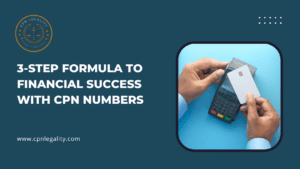
3-Step Formula to Financial Success With CPN Numbers
Achieve financial success with our 3-Step Formula leveraging CPN Numbers for a secure and prosperous future.
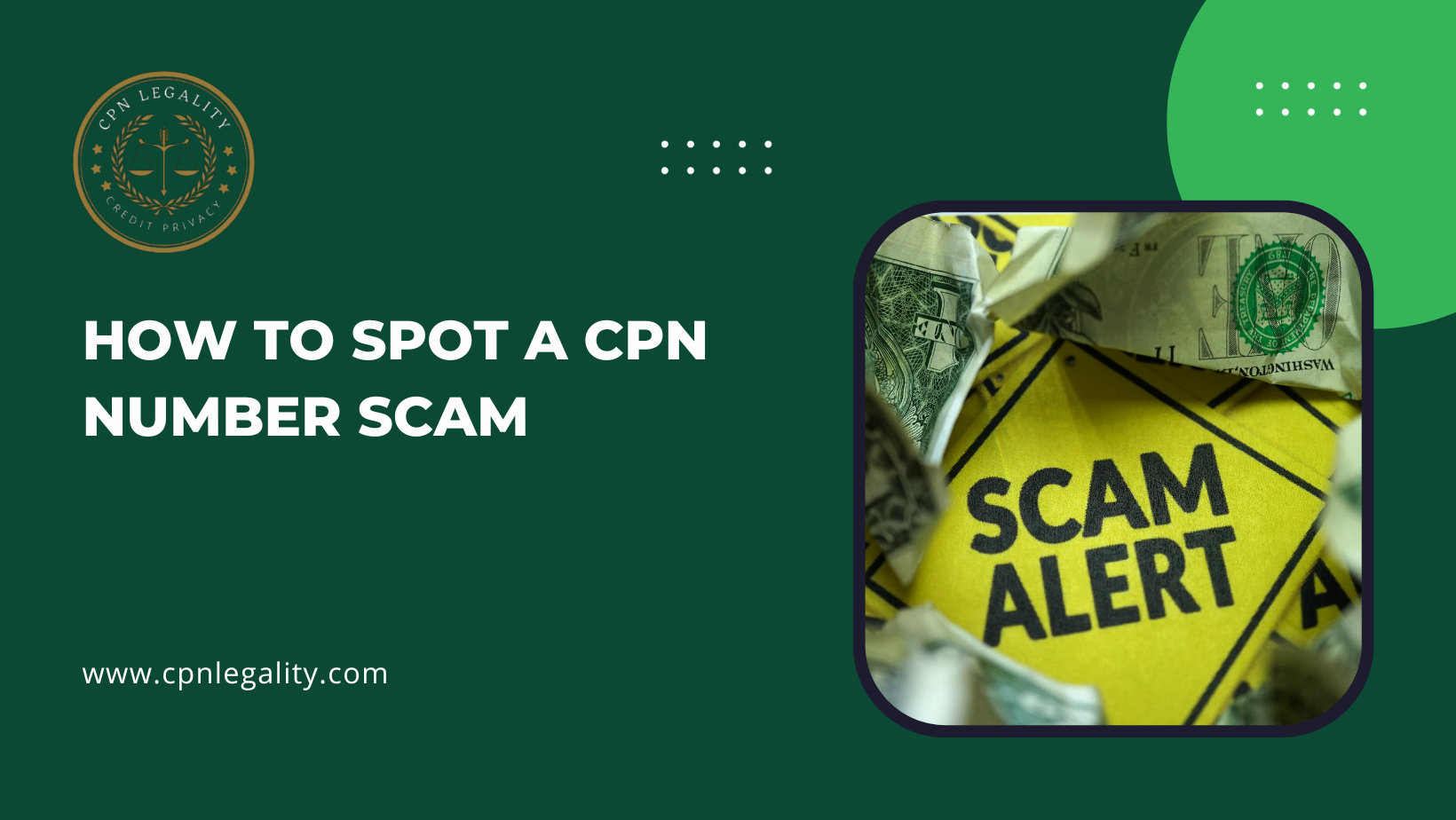
In today’s digital age, scams have become increasingly sophisticated, and one type that has been on the rise is CPN number scams. CPN, or Credit Privacy Number, is a nine-digit identification number used by some individuals to establish credit.
While CPNs can be legitimate when used properly, scammers have found ways to exploit them for fraudulent activities. In this article, we will guide you on how to spot a CPN number scam and the warning signs you should watch out for.
A CPN number, or Credit Privacy Number, is a nine-digit identifier that some people use instead of their Social Security Number (SSN) when applying for credit. It was originally intended for specific purposes, such as safeguarding personal information. However, scammers have found ways to misuse CPNs for fraudulent activities.
Legitimate uses of CPN numbers include protecting your SSN, privacy, and credit history. They can be employed for financial transactions that require identification without revealing your SSN.
A Credit Privacy Number (CPN) can have various legitimate applications when used responsibly.
It’s important to note that while CPNs have legitimate uses, they should never be used for fraudulent or illegal activities, such as obtaining credit under false pretenses. Understanding the lawful and ethical ways to use CPNs is essential to avoid legal consequences.
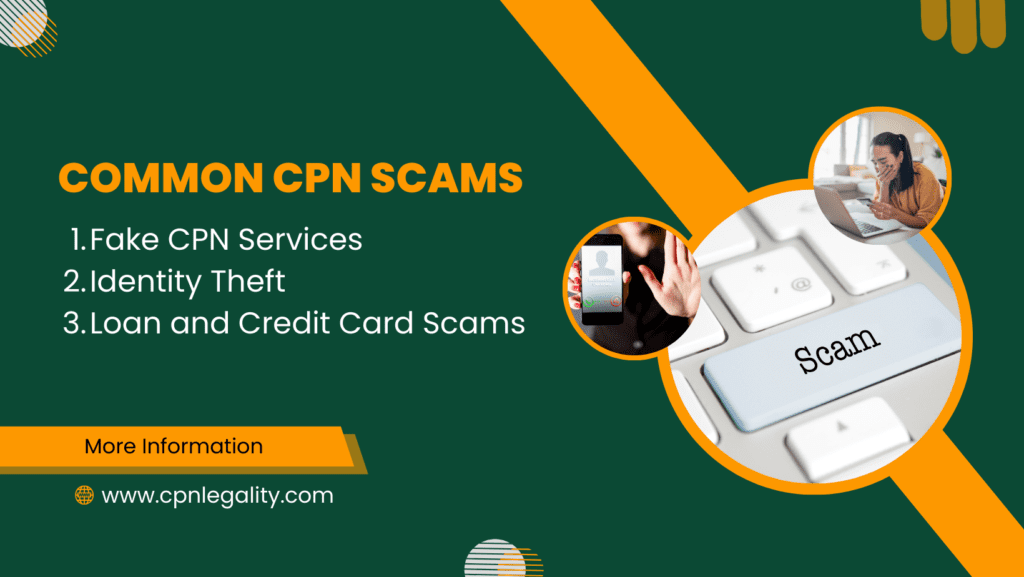
Being aware of these prevalent CPN scams is the first step in protecting yourself from fraudsters who seek to exploit your personal information and financial security. Everyone should be aware of CPN scams. These are some common CPN scams:
Scammers often claim to provide legitimate CPN services but end up selling fake or invalid numbers. These fake CPNs can get you into serious legal trouble.
Some scammers use CPNs to steal your identity, leading to financial and personal consequences. Be wary of anyone asking for your CPN without a valid reason.
Fraudsters may promise to secure loans or credit cards with a CPN, but these offers are usually scams. Legitimate lenders always conduct credit checks.
Recognizing these red flags and warning signs is crucial in safeguarding yourself against CPN scams, empowering you to make informed decisions and protect your financial well-being. These are some of the warning signs of CPN scams you should know:
If you receive unsolicited offers for CPNs via email or social media, be cautious. Legitimate services do not typically reach out this way.
Beware of services that claim no credit checks are necessary when obtaining a CPN. Credit checks are essential for responsible lending.
Scammers often ask for upfront fees for CPN services. Legitimate services do not require payment until they’ve provided the promised service.
If a service doesn’t verify your identity or asks for minimal personal information, it could be a scam. Legitimate providers have strict verification processes.
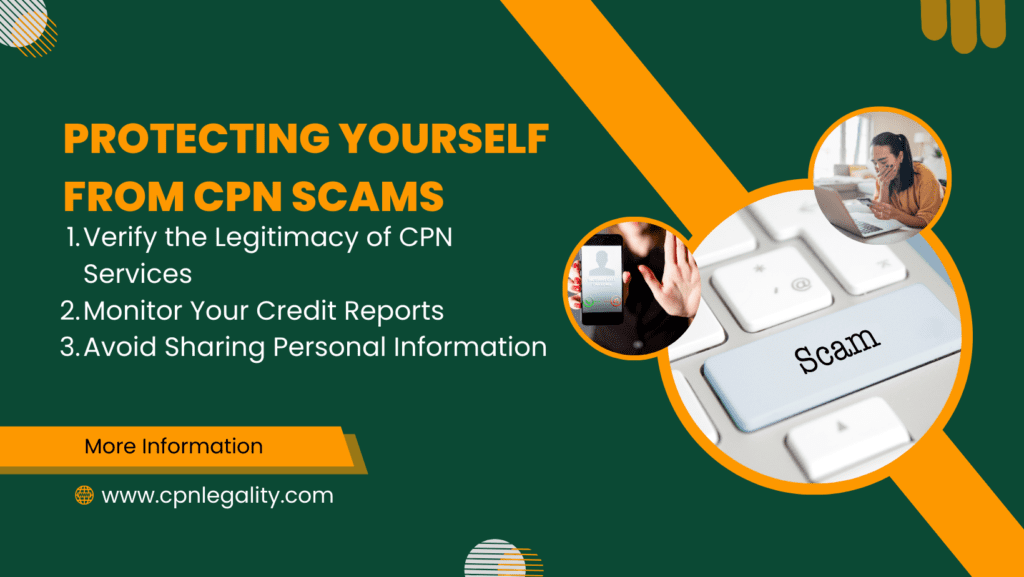
By following these proactive measures and staying informed, you can shield yourself from falling victim to CPN scams and their potentially devastating consequences.
Before using any CPN service, research its reputation, and check for reviews. Legitimate providers will have a track record of helping clients.
Regularly monitor your credit reports to detect any unusual activity. Report discrepancies immediately to the credit bureaus.
Only share your CPN with trusted entities for legitimate purposes. Never give it out to unknown individuals or companies.
Taking action by reporting CPN scams to the appropriate authorities can not only help you recover from potential fraud but also contribute to the prevention of future scams, safeguarding both your financial well-being and that of others.
If you suspect you’ve encountered a CPN scam, report it to the FTC. They investigate and take action against fraudulent activities.
Local law enforcement agencies may also be interested in CPN scams. Filing a complaint can help prevent further fraud.
Understanding the legal and ethical use of CPNs is essential to ensure that you leverage these identification numbers responsibly, protecting your financial reputation while staying within the boundaries of the law.
Some legitimate credit repair services may use CPNs as part of their strategies. Ensure you use such services responsibly and ethically.
If you legitimately obtain a CPN, use it to build your credit responsibly and within the bounds of the law.
Safeguarding yourself from CPN scams demands constant vigilance and heightened awareness. It’s imperative to exercise caution when confronted with unsolicited offers related to CPNs. Verifying the legitimacy of services offering CPN-related assistance is essential; research their reputation and track record.
Above all, never disclose your CPN to unknown or unverified entities, as it could lead to potential identity theft or fraud. By adopting a proactive stance and staying well-informed about the risks associated with CPN scams, you take significant steps towards securing your financial well-being and personal information, ensuring a safer financial journey.
Read related article: Understanding the Risks and Consequences of CPN Number Usage
Yes, using a CPN for legitimate purposes to protect your SSN and privacy is legal. However, using it to engage in fraudulent activities is illegal and can lead to severe consequences.
Research the service provider, check for reviews, and ensure they have a good reputation. Legitimate services will have a history of helping clients improve their credit legally.
Report the incident to the Federal Trade Commission (FTC) and consider filing a complaint with your local law enforcement agency. Taking prompt action can help prevent further fraud.
Legitimate CPN services may charge fees, but they typically do so after providing the promised service. Be cautious of services that demand upfront payments.
While it is possible to apply for loans and credit cards with a CPN, legitimate lenders will still conduct credit checks. Be wary of offers that claim otherwise, as they may be scams.

Achieve financial success with our 3-Step Formula leveraging CPN Numbers for a secure and prosperous future.
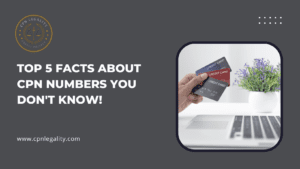
Uncover hidden truths with the top 5 facts about CPN numbers that you never knew in this revealing exploration.
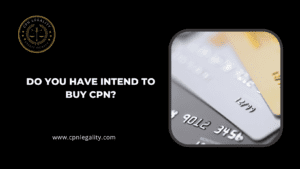
Discover the ins and outs of buying CPNs – Are they right for you? Explore the world of CPNs and their implications.
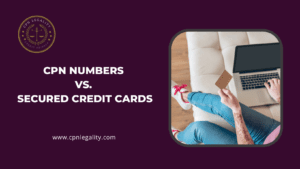
Comparing CPN Numbers and Secured Credit Cards – Uncover the best credit-building options and make informed financial choices.
Call us now!
©2023 by CPN Legality. Managed by Abaani Tech